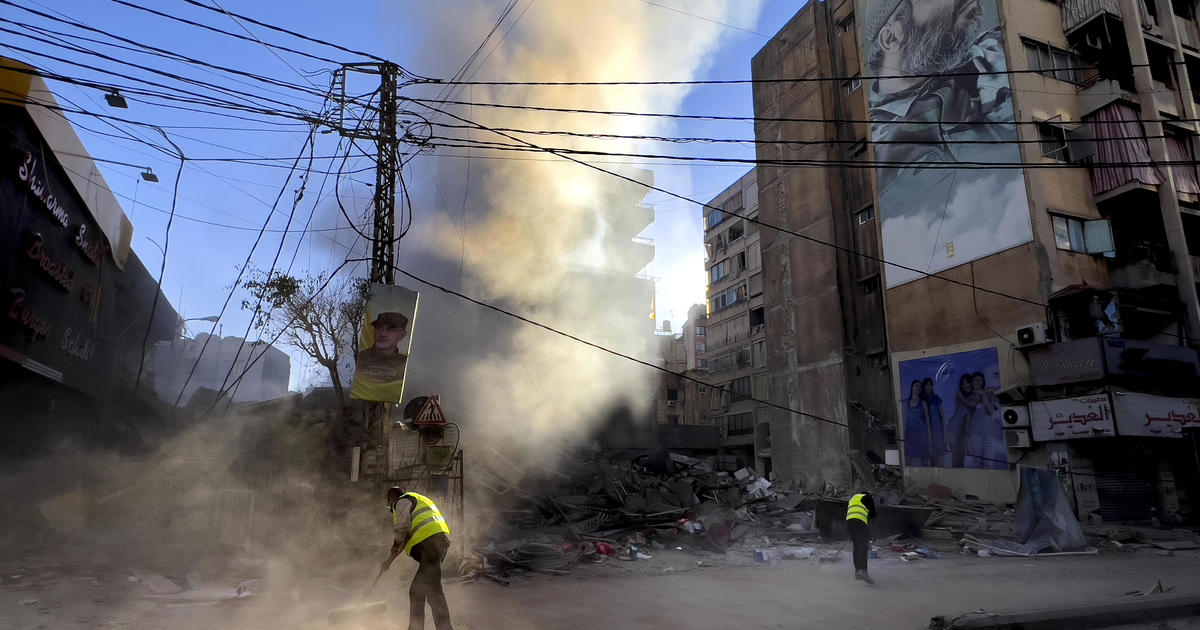Israel’s recent military actions in Lebanon and Gaza represent a significant escalation of the ongoing conflict. The multifaceted nature of the situation, involving multiple actors and complex geopolitical dynamics, demands careful analysis to understand its implications. The Israeli Defense Forces’ (IDF) announcement of impending strikes targeting Hezbollah’s financial infrastructure in Lebanon, coupled with the continued intense offensive in Gaza, paints a grim picture of escalating violence. The targeting of civilian areas and infrastructure further exacerbates the humanitarian crisis in both regions. The international community’s response, though present, has yet to effectively curb the violence and initiate lasting peace negotiations.
Israel’s Targeting of Hezbollah’s Finances in Lebanon
The IDF’s decision to target Hezbollah’s financial network, specifically al-Qard al-Hassan, marks a significant shift in the conflict’s strategy. This move aims to cripple the organization’s ability to fund its operations, acquire weapons, and pay its operatives.
Implications of Targeting Al-Qard al-Hassan
The targeting of al-Qard al-Hassan, while strategically aimed at weakening Hezbollah, poses substantial risks. The organization provides financial services to ordinary Lebanese citizens, making the distinction between legitimate financial activities and those supporting terrorism difficult to discern. This risk of civilian casualties could fuel further instability and resentment towards Israel, escalating the conflict rather than resolving it.
International Response and Concerns
The targeting of a financial institution with ties to civilians raises concerns regarding potential breaches of international humanitarian law. The international community is divided in its reaction; while some support Israel’s right to defend itself against threats, others emphasize the importance of minimizing civilian casualties and upholding international law. The ambiguity surrounding the extent of the planned strikes and evacuation warnings also adds to the anxiety and uncertainty. The lack of a clear path to peace further compounds these concerns.
The Ongoing Gaza Offensive and Humanitarian Crisis
Israel’s large-scale military operation in northern Gaza has resulted in a catastrophic humanitarian situation. The reported deaths and injuries, coupled with the damage to critical infrastructure, including hospitals, depict a scene of profound destruction and suffering.
The Scale of the Devastation in Gaza
The numbers reported from Gaza paint a horrifying picture: dozens of deaths, hundreds wounded, and thousands displaced. The destruction of homes and hospitals has compounded the crisis, pushing the already fragile healthcare system to the brink of collapse. The inability to effectively respond to emergencies exacerbates the situation even further. The Israeli offensive has dramatically worsened the living conditions for a population already facing hardships.
International Calls for a Ceasefire
The U.S., among other international players, has repeatedly called for a ceasefire in Gaza, citing the humanitarian catastrophe unfolding before their eyes. Yet these pleas for a cessation of violence have fallen on deaf ears. The entrenched positions of both Israel and Hamas, fueled by mutual grievances and decades of conflict, appear insurmountable without the intervention of a forceful, influential peace mediator.
The Geopolitical Implications and International Involvement
The conflict transcends the immediate geographical boundaries, implicating regional players such as Iran, which supports both Hezbollah and Hamas. This international involvement dramatically increases the conflict’s complexity and its capacity for escalation.
The Role of Iran and Regional Instability
Iran’s backing of both Hezbollah and Hamas fuels the conflict, complicating any efforts toward peaceful resolution. This multifaceted intervention expands the zone of influence, embroiling neighbouring countries and raising concerns regarding potential broader regional conflict. Addressing Iran’s role in the region requires a delicate, multilateral strategy to mitigate further escalation.
U.S. Involvement and Mediation Efforts
The United States’ continued engagement, evidenced by phone calls between officials and its past mediating efforts, highlights the international community’s involvement and concern. While the U.S. is attempting to balance support for Israel’s security needs and calls for minimizing civilian casualties, its ability to effectively mediate a ceasefire remains uncertain given the hardened positions of both sides and the high stakes involved.
Civilian Casualties and the Humanitarian Imperative
The alarming number of civilian casualties in both Lebanon and Gaza highlights the ethical dimensions of this conflict. International humanitarian law, which aims to protect civilians in conflict zones, is under increasing scrutiny.
The Urgent Need for Humanitarian Aid
The humanitarian crisis demands an immediate and comprehensive response. The destruction of essential infrastructure, including hospitals and sanitation systems, necessitates an outpouring of humanitarian aid to support the displaced population, attend to the injured, and provide emergency resources. However, even these necessary steps may prove to be an inadequate stopgap, and cannot replace peace and reconciliation.
Accountability and Justice
The escalating conflict raises pressing concerns about accountability for human rights violations. The investigation of potential breaches of international law must be undertaken to ensure those responsible for harm to civilians are held to account. This responsibility to deliver accountability transcends national and ideological interests and necessitates effective international cooperation to ensure transparency and due process.
Take Away Points:
- The conflict in Lebanon and Gaza has dramatically escalated, with significant civilian casualties in both areas.
- Israel’s targeting of Hezbollah’s financial network, though strategically motivated, carries high risks of civilian casualties.
- The humanitarian crisis in Gaza is severe, with hospitals under attack, the health system teetering, and massive displacement of populations.
- International involvement is crucial, but the complex geopolitical dynamics involving various regional actors create major obstacles to resolving the conflict.
- Accountability for civilian casualties and potential breaches of international law is a key element needed to restore lasting peace.




